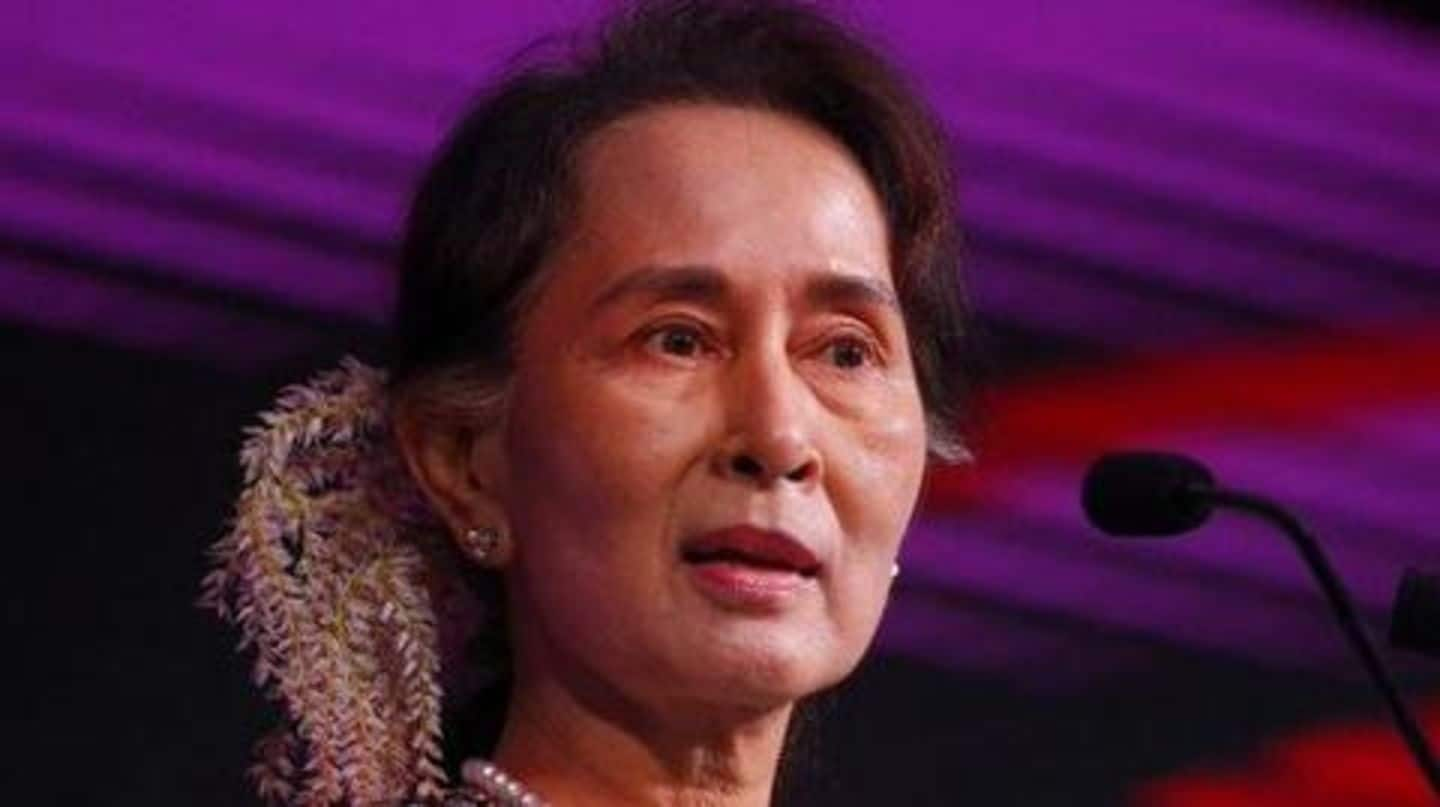
Amnesty International strips Aung San Suu Kyi of highest honor
What's the story
Amnesty International yesterday stripped Aung San Suu Kyi of its highest honor over the de facto Myanmar leader's "indifference" to the atrocities committed by the country's military against Rohingya Muslims.
The London-based global human rights organization said that it was revoking the Ambassador of Conscience Award it gave to Suu Kyi in 2009, while she was still under house arrest.
Here's more.
The letter
You're no longer symbol of courage: Amnesty to Suu Kyi
In a letter to Suu Kyi, Amnesty International chief Kumi Naidoo said, "Today, we're profoundly dismayed that you no longer represent a symbol of hope, courage, and the undying defense of human rights."
"Amnesty International cannot justify your continued status as a recipient of the Ambassador of Conscience award and so with great sadness, we are hereby withdrawing it from you," the letter stated.
Twitter Post
Amnesty Chief Kumi Naidoo tweeted the decision yesterday
Aung San Suu Kyi once stood as a symbol of hope, courage and the undying defence of human rights in #Myanmar.@amnesty recognised her with our highest honour, the Ambassador of Conscience award.
— Kumi Naidoo (@kuminaidoo) November 12, 2018
Sadly, we can no longer justify this honour and today we are withdrawing the award pic.twitter.com/gYenr0HAYg
Details
Suu Kyi's tenure has been marred by Rohingya Muslims controversy
Suu Kyi and her National League for Democracy (NLD) party swept to power in 2015 in a landslide victory, ending decades of military rule in Myanmar.
But her tenure has been marred by a failure to speak up for Rohingya Muslims who were driven out of the country by the army in what the United Nations has called an ethnic cleansing campaign.
Information
Her silence on Rohingya Muslims cost Suu Kyi many awards
Last month, the 73-year-old Nobel Peace Prize laureate was stripped of her honorary Canadian citizenship over her failure to speak up for the Rohingya Muslims. She has also lost numerous smaller awards from individual universities as well as local and regional governments.
Twitter Post
Amnesty International declares fight for justice in Myanmar will continue
“We will continue to fight for justice and human rights in Myanmar – with or without her support.” - @kuminaidoo
— Amnesty International (@amnestyusa) November 12, 2018
The fall
Earlier, Suu Kyi was hailed as a fierce freedom fighter
More than 720,000 Rohingya Muslims fled the Buddhist majority's western Rakhine state in a military crackdown from August last year.
Many are believed to have been either murdered, tortured or raped.
Suu Kyi, who was awarded Nobel Peace Prize in 1991, was globally hailed as a freedom fighter who stood up to her country's feared military dictatorship while spending 15 years under house arrest.